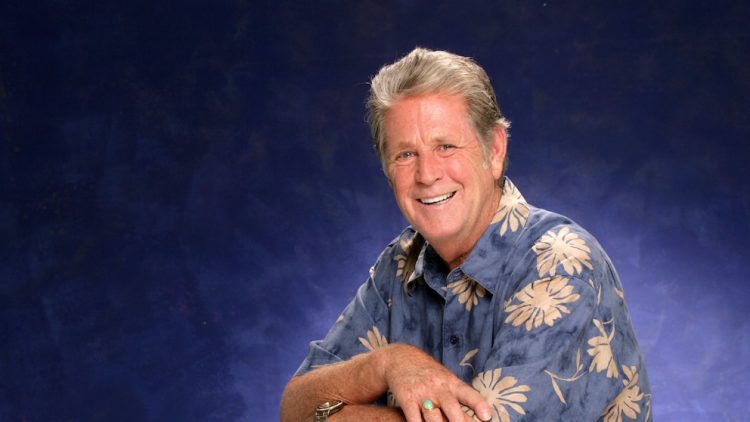Who is Brian Wilson?
Brian Wilson, the creative force behind The Beach Boys, is widely regarded as one of the most influential figures in modern music history.
As a songwriter, producer, and arranger, Wilson revolutionized pop music in the 1960s with his innovative compositions, intricate harmonies, and introspective lyricism.
From the sun-soaked anthems of Surfin’ USA to the groundbreaking artistry of Pet Sounds and the ambitious SMiLE project, Wilson’s work with The Beach Boys defined an era and reshaped the boundaries of popular music.
Yet, his life is also a story of personal struggle, marked by mental health challenges, addiction, and a complex relationship with fame.
As of June 2025, with Wilson’s legacy celebrated through recent documentaries, reissues, and tributes, his contributions continue to resonate globally.
This article explores Brian Wilson’s musical innovations, personal trials, and lasting impact, optimized for a global audience seeking to understand the genius behind The Beach Boys and his journey through triumph and adversity.

Early Life and Formation of The Beach Boys
Brian Douglas Wilson was born on June 20, 1942, in Inglewood, California, to Audree and Murry Wilson.
Raised in a musical household, Wilson showed prodigious talent early, mastering harmonies and chord progressions despite partial deafness in one ear, attributed to childhood trauma.
Alongside brothers Dennis and Carl, cousin Mike Love, and friend Al Jardine, Wilson formed The Beach Boys in 1961 in Hawthorne, California.
Initially called The Pendletones, the group adopted a surf-rock identity, capitalizing on California’s beach culture.
Wilson’s early songwriting, including hits like “Surfin’” and “Surfin’ Safari,” captured the carefree spirit of youth, with lyrics celebrating surfing, cars, and romance.
His role as the band’s primary composer, arranger, and producer set him apart, blending doo-wop, jazz, and rock influences into a distinctive sound.
By 1963, albums like Surfer Girl and Little Deuce Coupe established The Beach Boys as America’s answer to The Beatles, with Wilson’s studio wizardry driving their success.
Musical Innovation: The Pet Sounds Revolution
In 1966, Brian Wilson released Pet Sounds, a landmark album that redefined pop music.
Frustrated by the band’s surf-rock image and inspired by The Beatles’ Rubber Soul, Wilson sought to create a cohesive, emotionally resonant work.
Collaborating with lyricist Tony Asher, he crafted songs like “God Only Knows,” “Wouldn’t It Be Nice,” and “Caroline, No,” which explored themes of love, loss, and introspection.
The album’s lush instrumentation, featuring unconventional elements like theremins, bicycle bells, and orchestral arrangements, showcased Wilson’s genius as a producer.
Pet Sounds was initially met with mixed commercial success in the U.S., peaking at No. 10 on the Billboard 200, but its critical acclaim grew over time, particularly in the UK, where it reached No. 2.
The album influenced The Beatles’ Sgt. Pepper’s Lonely Hearts Club Band and inspired countless artists, from Paul McCartney to Radiohead’s Thom Yorke.
McCartney famously called “God Only Knows” the greatest song ever written, cementing Wilson’s reputation as a musical innovator.
The SMiLE Project and Its Collapse
Following Pet Sounds, Wilson embarked on his most ambitious project, SMiLE, intended as a “teenage symphony to God.”
Conceived as a concept album blending Americana, psychedelia, and avant-garde elements, SMiLE featured intricate modular compositions and collaborations with lyricist Van Dyke Parks.
Songs like “Heroes and Villains” and “Good Vibrations”, a No. 1 hit in 1966, hinted at its potential.
However, the project’s complexity, combined with Wilson’s deteriorating mental health, band tensions, and pressure from Capitol Records, led to its abandonment in 1967.
Wilson’s struggles with schizophrenia, exacerbated by drug use and the domineering influence of his father, Murry, contributed to the collapse.
He withdrew from the studio, leaving SMiLE unfinished for decades. The Beach Boys released Smiley Smile, a scaled-back substitute, in its place, which disappointed fans and critics.
The myth of SMiLE grew over time, with bootlegs circulating until Wilson completed and released Brian Wilson Presents SMiLE in 2004, earning a Grammy for Best Rock Instrumental Performance.
Personal Struggles: Mental Health and Control
Brian Wilson’s creative peak coincided with profound personal challenges.
Diagnosed with schizoaffective disorder, he experienced auditory hallucinations and severe anxiety, worsened by LSD and amphetamine use.
His father’s abusive management and the pressures of fame intensified his struggles.
In the late 1960s, Wilson retreated from The Beach Boys, spending periods in psychiatric care and battling addiction.
In the 1970s, Wilson came under the control of psychologist Eugene Landy, who initially helped stabilize him but later exerted manipulative influence, isolating Wilson from family and exploiting his finances.
Landy’s controversial “24-hour therapy” led to Wilson’s temporary withdrawal from public life.
A 1991 court ruling freed Wilson from Landy’s control, allowing him to reconnect with his family, including wife Melinda Ledbetter and their adopted children.
This period marked the beginning of Wilson’s gradual recovery, though his mental health remained fragile.
Resurgence and Solo Career
The 1980s and 1990s saw Wilson re-emerge as a solo artist. His 1988 self-titled album, Brian Wilson, featured tracks like “Love and Mercy,” showcasing his enduring songwriting prowess.
Despite mixed commercial success, it marked a return to creative control.
The 2004 release of SMiLE was a triumph, earning critical acclaim and proving Wilson’s ability to reclaim his vision.
Subsequent albums, including That Lucky Old Sun (2008) and No Pier Pressure (2015), demonstrated his continued relevance, with collaborations featuring artists like Zooey Deschanel and Nate Ruess.
Wilson’s live performances, including tours revisiting Pet Sounds and SMiLE, captivated global audiences.
His 2016 Pet Sounds 50th Anniversary World Tour sold out venues from London to Tokyo, affirming his universal appeal.
Documentaries like Brian Wilson: Long Promised Road (2021) and the upcoming Brian Wilson: Wouldn’t It Be Nice (2025) have introduced his story to new generations, blending archival footage with reflections from peers like Bruce Springsteen and Elton John.
Legacy and Influence
Brian Wilson’s influence on music is immeasurable.
Pet Sounds is consistently ranked among the greatest albums of all time, with Rolling Stone placing it at No. 2 in its 2020 list.
His use of multi-layered harmonies, innovative production techniques, and emotionally complex songwriting paved the way for genres like baroque pop, psychedelic rock, and indie music.
Artists from The Beatles to Fleet Foxes cite Wilson as a primary influence, with his studio experimentation shaping modern production.
Beyond music, Wilson’s openness about mental health has destigmatized discussions of psychological struggles in the arts.
His resilience, supported by family and fans, resonates globally, particularly in 2025, as mental health awareness grows.
Reissues like the Feel Flows box set (2021) and tributes at events like the 2024 Grammy Awards highlight his enduring relevance.
The Beach Boys’ catalog, driven by Wilson’s vision, continues to generate millions in royalties, with over 100 million records sold worldwide.
Controversies and Challenges
Wilson’s life has not been without controversy. His relationship with The Beach Boys was strained by creative differences, particularly with Mike Love, who favored commercial hits over Wilson’s experimental ambitions.
Legal battles over songwriting credits, notably for “Surfin’ USA” (credited to Wilson but based on Chuck Berry’s “Sweet Little Sixteen”), sparked disputes.
Love’s 2012 decision to tour without Wilson also drew criticism from fans, though reconciliations occurred for the band’s 50th anniversary in 2012.
Wilson’s time under Landy’s control remains a dark chapter, with allegations of financial abuse and over-medication.
The 2014 biopic Love & Mercy, starring Paul Dano and John Cusack as Wilson, brought renewed attention to this period, praised for its sensitive portrayal but criticized by some for dramatization.
Wilson’s own reflections, shared in interviews and his 2016 memoir I Am Brian Wilson, underscore his survival and redemption.
The Beach Boys in 2025
As of June 2025, The Beach Boys remain active, with Mike Love and Bruce Johnston leading a touring lineup, while Wilson focuses on solo work.
The band’s legacy is celebrated through reissues, including a 2024 vinyl release of Pet Sounds with new liner notes. Disney+’s Micky Dolenz Celebrates The Monkees includes a cover of “Good Vibrations,” highlighting Wilson’s cross-generational influence.
Speculation about a Beach Boys reunion tour persists, but Wilson’s health and preference for solo projects make it unlikely.
Recent X posts reflect ongoing fan devotion, with @BeachBoysFan tweeting, “Brian Wilson’s harmonies still give me chills, Pet Sounds is eternal.”
The upcoming documentary Brian Wilson: Wouldn’t It Be Nice, set for release in late 2025, promises unseen footage and interviews, further cementing his legacy.
Wilson’s website, brianwilson.com, offers tour updates and merchandise, keeping fans engaged globally.
Mental Health Advocacy and Personal Life
Wilson’s candor about his mental health struggles has made him an inadvertent advocate.
In a 2024 interview with The Guardian, he discussed managing schizoaffective disorder with medication and therapy, inspiring fans worldwide.
His marriage to Melinda Ledbetter, who passed in 2024, provided stability, and their five adopted children remain a source of strength.
Wilson’s home in Beverly Hills, where he composes on a grand piano, is a sanctuary, though he limits public appearances due to health concerns.
Organizations like the National Alliance on Mental Illness (NAMI) have praised Wilson for raising awareness, with his story resonating in countries like the UK, Australia, and Japan, where mental health stigma persists.
His advocacy, though unintentional, aligns with 2025’s global push for mental health resources, amplified by platforms like X, where fans share messages like, “Brian Wilson’s courage is as inspiring as his music.”
Conclusion
Brian Wilson’s journey from a California teenager to a musical icon is a testament to genius, resilience, and redemption.
Through Pet Sounds, SMiLE, and countless hits, he transformed pop music, leaving an indelible mark on the global cultural landscape.
His struggles with mental health, addiction, and control, followed by his triumphant return, offer a universal story of perseverance.
In 2025, as new generations discover his work through documentaries, reissues, and tributes, Wilson’s legacy endures, not only as the architect of The Beach Boys’ sound but as a symbol of hope for those navigating personal challenges.
The harmonies of “God Only Knows” and the ambition of SMiLE continue to echo, reminding the world that Brian Wilson’s music, and spirit, are timeless.
































